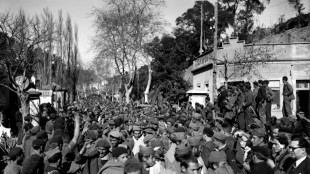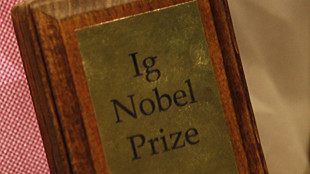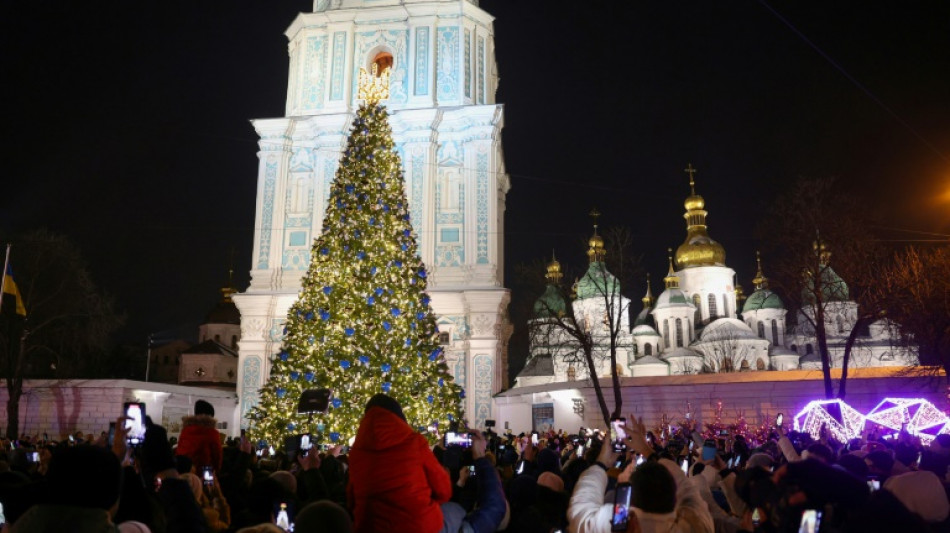
-
 Women sommeliers are cracking male-dominated wine world open
Women sommeliers are cracking male-dominated wine world open
-
Exhibition of Franco-Chinese print master Zao Wou-Ki opens in Hong Kong
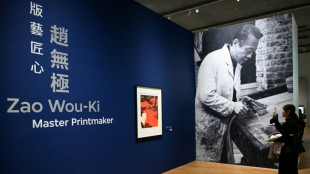
-
 Myanmar junta denies killing civilians in hospital strike
Myanmar junta denies killing civilians in hospital strike
-
Why SpaceX IPO plan is generating so much buzz
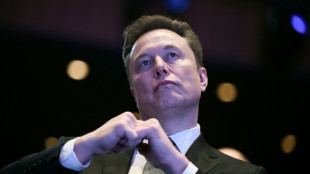
-
 Thailand continues Cambodia strikes despite Trump truce calls
Thailand continues Cambodia strikes despite Trump truce calls
-
US envoy to meet Zelensky, Europe leaders in Berlin this weekend
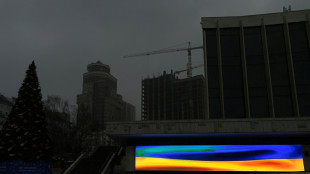
-
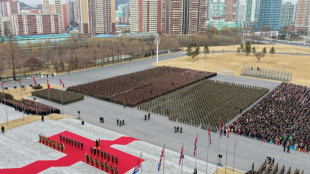 North Korea acknowledges its troops cleared mines for Russia
North Korea acknowledges its troops cleared mines for Russia
-
US unseals warrant for tanker seized off Venezuelan coast
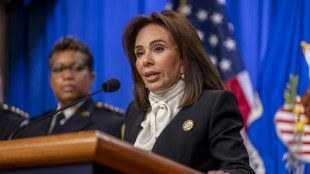
-
 Cambodia says Thailand still bombing hours after Trump truce call
Cambodia says Thailand still bombing hours after Trump truce call
-
Machado urges pressure so Maduro understands 'he has to go'
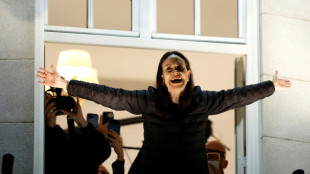
-
 Best Gold Investment Companies in USA Announced (Augusta Precious Metals, Lear Capital, Robinhood IRA and More Ranked)
Best Gold Investment Companies in USA Announced (Augusta Precious Metals, Lear Capital, Robinhood IRA and More Ranked)
-
Leinster stutter before beating Leicester in Champions Cup

-
 World stocks mostly slide, consolidating Fed-fuelled gains
World stocks mostly slide, consolidating Fed-fuelled gains
-
Crypto firm Tether bids for Juventus, is quickly rebuffed
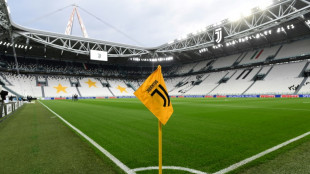
-
 Union sink second-placed Leipzig to climb in Bundesliga
Union sink second-placed Leipzig to climb in Bundesliga
-
US Treasury lifts sanctions on Brazil Supreme Court justice
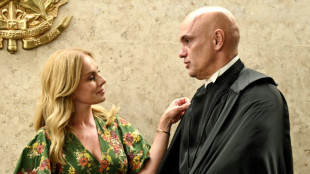
-
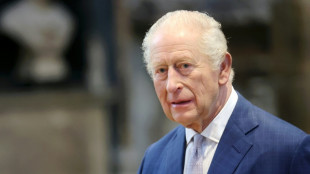 UK king shares 'good news' that cancer treatment will be reduced in 2026
UK king shares 'good news' that cancer treatment will be reduced in 2026
-
Wembanyama expected to return for Spurs in NBA Cup clash with Thunder

-
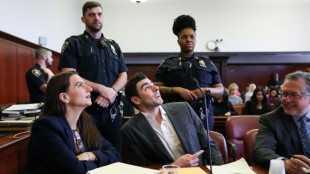 Five takeaways from Luigi Mangione evidence hearings
Five takeaways from Luigi Mangione evidence hearings
-
UK's king shares 'good news' that cancer treatment will be reduced in 2026
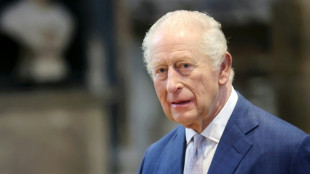
-
 Steelers' Watt undergoes surgery to repair collapsed lung
Steelers' Watt undergoes surgery to repair collapsed lung
-
Iran detains Nobel-prize winner in 'brutal' arrest
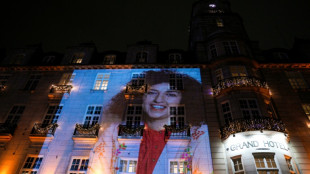
-
 NBA Cup goes from 'outside the box' idea to smash hit
NBA Cup goes from 'outside the box' idea to smash hit
-
UK health service battles 'super flu' outbreak

-
 Can Venezuela survive US targeting its oil tankers?
Can Venezuela survive US targeting its oil tankers?
-
Democrats release new cache of Epstein photos
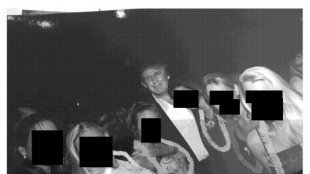
-
 Colombia's ELN guerrillas place communities in lockdown citing Trump 'intervention' threats
Colombia's ELN guerrillas place communities in lockdown citing Trump 'intervention' threats
-
'Don't use them': Tanning beds triple skin cancer risk, study finds

-
 Nancy aims to restore Celtic faith with Scottish League Cup final win
Nancy aims to restore Celtic faith with Scottish League Cup final win
-
Argentina fly-half Albornoz signs for Toulon until 2030

-
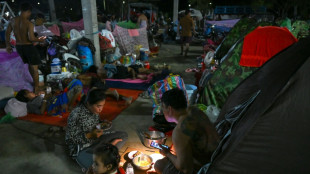 Trump says Thailand, Cambodia have agreed to stop border clashes
Trump says Thailand, Cambodia have agreed to stop border clashes
-
Salah in Liverpool squad for Brighton after Slot talks - reports
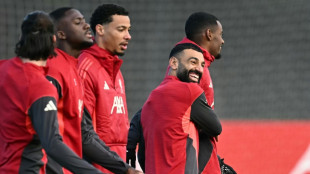
-
 Marseille coach tips Greenwood as 'potential Ballon d'Or'
Marseille coach tips Greenwood as 'potential Ballon d'Or'
-
Draw marks 'starting gun' toward 2026 World Cup, Vancouver says

-
 Thai PM says asked Trump to press Cambodia on border truce
Thai PM says asked Trump to press Cambodia on border truce
-
Salah admired from afar in his Egypt home village as club tensions swirl

-
 World stocks retrench, consolidating Fed-fuelled gains
World stocks retrench, consolidating Fed-fuelled gains
-
Brazil left calls protests over bid to cut Bolsonaro jail time
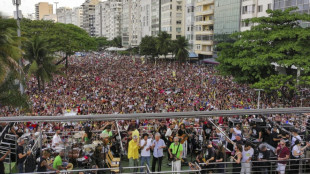
-
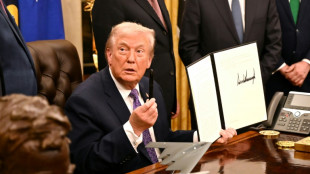 Trump attack on Europe migration 'disaster' masks toughening policies
Trump attack on Europe migration 'disaster' masks toughening policies
-
US plan sees Ukraine joining EU in 2027, official tells AFP
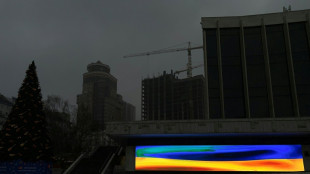
-
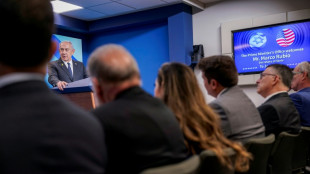 'Chilling effect': Israel reforms raise press freedom fears
'Chilling effect': Israel reforms raise press freedom fears
-
Iran frees child bride sentenced to death over husband's killing: activists
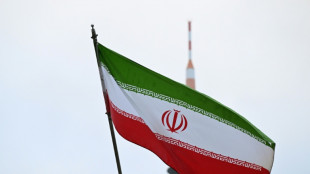
-
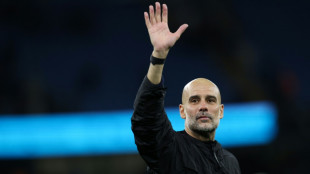 No doubting Man City boss Guardiola's passion says Toure
No doubting Man City boss Guardiola's passion says Toure
-
Youthful La Rochelle name teen captain for Champions Cup match in South Africa

-
 World stocks consolidate Fed-fuelled gains
World stocks consolidate Fed-fuelled gains
-
British 'Aga saga' author Joanna Trollope dies aged 82
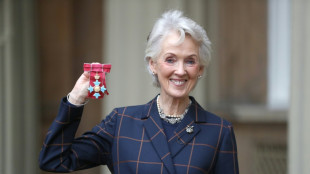
-
 Man Utd sweat on Africa Cup of Nations trio
Man Utd sweat on Africa Cup of Nations trio
-
EU agrees three-euro small parcel tax to tackle China flood

-
 Taylor Swift breaks down in Eras documentary over Southport attack
Taylor Swift breaks down in Eras documentary over Southport attack
-
Maresca 'relaxed' about Chelsea's rough patch


How Ukraine independence song became a Christmas classic
The catchy tune of "Carol of the Bells" may sound instantly familiar and evoke Christmas movies such as "Home Alone" but those humming along may have little inkling to the music's origins.
Used in countless holiday films and even performed by The Muppets, Carol of the Bells, a staple in western pop culture, stemmed from an early bid for Ukrainian independence.
The melody is a Ukrainian song called "Shchedryk", or New Year's carol, written by composer Mykola Leontovych and first performed in Kyiv at Christmas 1916.
This Christmas Eve, Ukrainian Radio Choir will perform the piece at Kyiv's Philharmonic at a sold-out concert that re-treads some of that musical history.
This comes as Ukraine celebrates Christmas on December 25 for the first time ever -- in sync with the West -- instead of on January 7 as in Russia.
- 'Musical diplomacy' -
The Kyiv concert on Sunday will recreate the first US concert performance of the Shchedryk, at a time when Ukraine was in a fragile state of independence after World War I.
The Ukrainian People's Republic had declared independence from Russia in 1918, led by nationalist politician Symon Petlyura.
To bolster the republic's standing, Petlyura decided to send the Ukrainian National Choir on a world tour.
"Petlyura wanted to persuade the Western entente to recognise Ukraine's independence, and so he initiated this project of musical diplomacy," said Tina Peresunko, who helped organise Sunday's concert.
The cultural researcher has written a book about Shchedryk and its links to Ukraine's struggle for independence.
The Ukrainian National Choir travelled to western Europe in 1919, then went to the United States, where Shchedryk had its national premiere at the Carnegie Hall in New York in October 1922.
Petlyura aimed "through song, through culture, through Ukraine's thousand-year-old folklore... to show that we are a nation, we are not Russians," Peresunko told AFP.
"The idea was through song to convey the right of Ukrainian people to independence.
"And it's very symbolic that it was Shchedryk, known to the world now as Carol of the Bells, became the hit of that tour."
Ultimately, though, Petlyura's musical diplomacy did not work and Ukraine became part of the USSR.
The original choir's singers remained in the US as emigres, fearing arrest by the Soviets.
The composer of Shchedryk never enjoyed the worldwide reaction to his piece: he was shot dead at his father's house in 1921 by a Soviet agent, according to the Ukrainian culture ministry.
But his music lived on.
In 1936, an American with Ukrainian roots, Peter Wilhousky took Shchedryk's music and wrote English lyrics titled Carol of the Bells, that have made it synonymous with Christmas.
- 'Difficult time for Ukraine' -
Ahead of Sunday's concert, the conductor of the Ukrainian Radio Choir, Yuliya Tkach, was leading a rehearsal in Kyiv, with singers wrapped up in scarves and jackets.
"Is it heated in here?" she asked at one point.
They were about to perform Shchedryk when an air raid siren sounded and they had to go down to a cellar.
Dressed in a traditional embroidered blouse, Tkach drew parallels between the turbulent time of the early performances of Shchedryk and now.
"Then there was a war, then there was a real struggle resulting in the Ukrainian People's Republic," she told AFP.
"Now this historical spiral is repeating itself."
The Kyiv concert on Sunday will recreate part of the programme from the first US concert which featured Shchedryk.
Tkach said the song is special to her: "First of all it's symbolic of Christmas holidays, secondly it is also about presenting Ukraine to the world, and thirdly, Mykola Leontovych is a composer dear to me."
The concert will also feature other songs from the original choir's world tour, some now rarely heard.
Peresunko scoured archives for the sheet music, some of which were only available in one copy.
"It's an extremely interesting programme," said Tkach.
"Some of the works were just a revelation to me."
The conductor said she would also like to take her choir on a tour abroad to "present the same repertoire to the world at this difficult time for Ukraine".
P.Santos--AMWN
